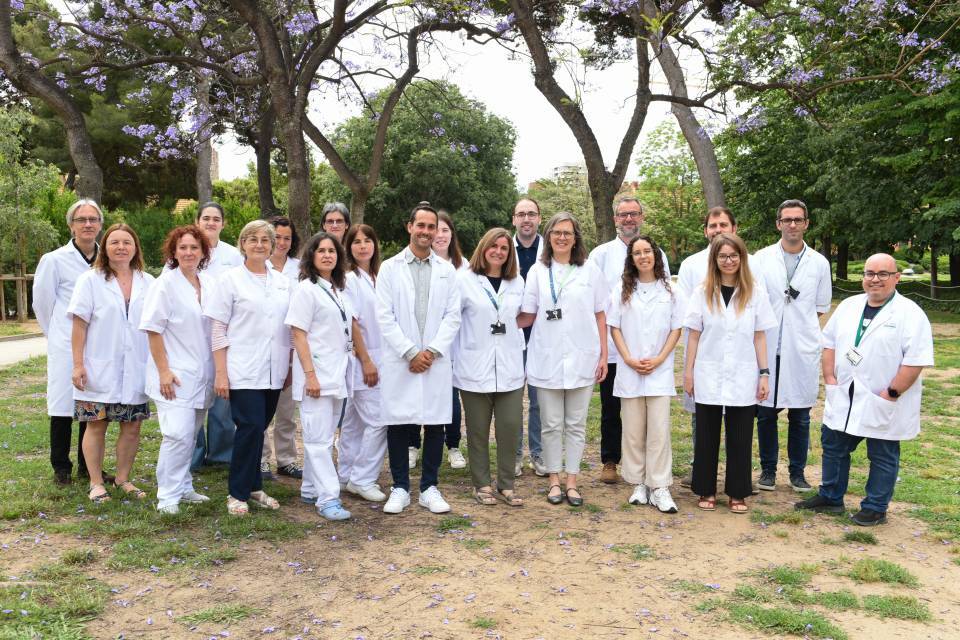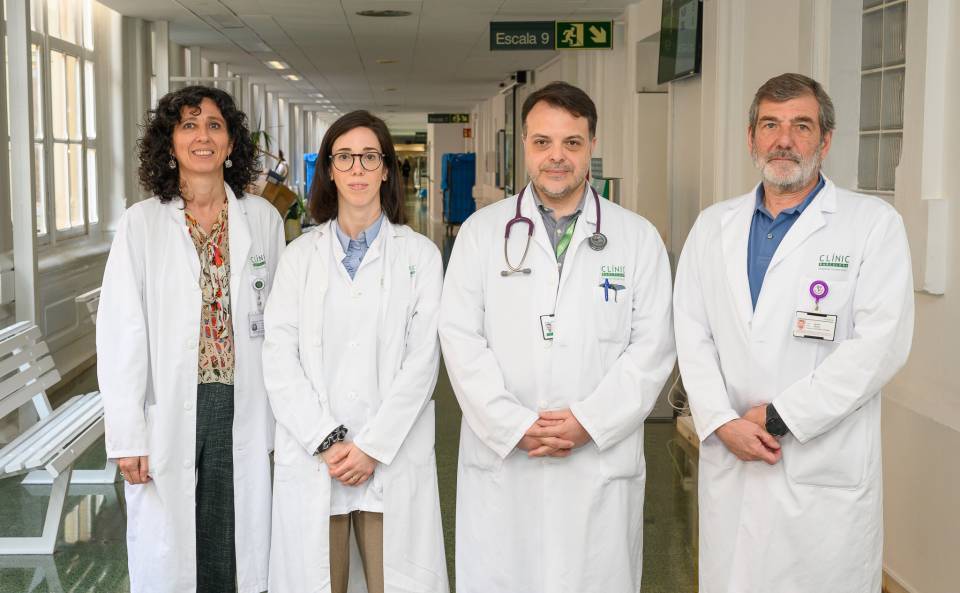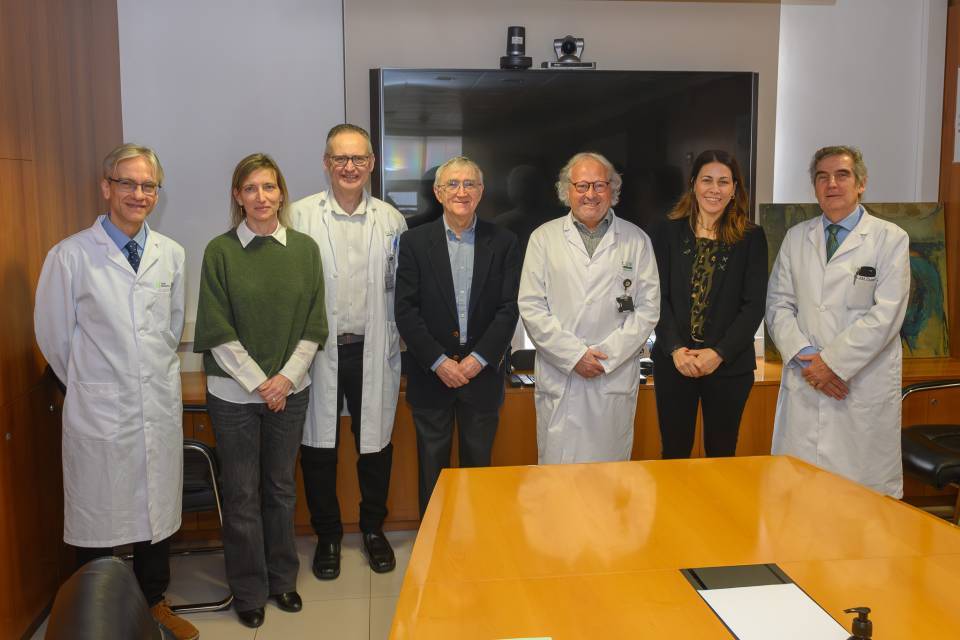Biochemistry and Molecular Genetics Service
The Biochemistry and Molecular Genetics Department participates in the following Units:
At the same time, the Biochemistry and Molecular Genetics Department is organized into four Sections:
- Section of Congenital Metabolic Disorders. It consists of two main areas. The first is responsible for carrying out newborn screening for the detection of 26 diseases in all newborns in Catalonia: congenital hypothyroidism, cystic fibrosis, twenty-one hereditary metabolic diseases (including phenylketonuria and other amino acid metabolism disorders, biotinidase deficiency and other organic acid metabolism disorders, and various fatty acid metabolism disorders), sickle cell disease, severe combined immunodeficiencies, and congenital adrenal hyperplasia. The second area focuses on the diagnosis of hereditary metabolic diseases, which is carried out, first, by studying metabolites using various chromatography and mass spectrometry techniques, and then through enzymatic and molecular studies. Whole exome sequencing (using Next Generation Sequencing techniques) enables the genetic diagnosis of all these diseases. The Section is a reference center for the diagnosis and monitoring of the treatment of these conditions, as well as an important research and development center.
- Section of Pharmacology and Toxicology. It is made up of a group of highly specialized laboratories that lead new trends in drug analysis and toxic screening using mass spectrometry methodology. The Pharmacology Laboratory is certified by the Generalitat de Catalunya to carry out Phase I studies (dose escalation of new drugs) and is a leader in new trends in comprehensive pharmacological monitoring, based on pharmacokinetic, pharmacogenetic and pharmacodynamic variables. One of its main areas of expertise is personalized immunosuppression pharmacology. Pharmacokinetic studies are also carried out for the development of new antitumor, antiretroviral and antimicrobial drugs. It actively participates in the Scientific Committees of the International Association of Therapeutic Drug Monitoring and Clinical Toxicology. In the field of Toxicology, drug and medication screening, confirmation of drugs of abuse, methanol levels and amanitin poisoning determinations are performed. It also offers various services for the diagnosis of different types of porphyrias. In this latter field, it is recognized as a reference center by the European Porphyria Initiative. In addition, the Section of Pharmacology and Toxicology is one of two Spanish centers participating in the Spanish Early Warning System (SEAT), whose general objective is to develop and maintain a rapid alert system for the detection, information exchange, evaluation and response to the emergence of new substances or events related to the consumption of psychoactive substances that may pose a public health problem. Other activities carried out in the Section include the determination of vitamins and trace elements by atomic absorption spectrometry.
- Section of Molecular Genetics. The Section of Molecular Genetics is dedicated to the genetic diagnosis of hereditary diseases using advanced techniques in molecular biology and cytogenetics. The clinical activity is concentrated in three main areas: Molecular Genetics, Cytogenetics and Genetic Counseling. The Molecular Genetics area serves as a reference center for the network of hospitals linked to the Catalan Health Institute. Molecular diagnostic tests are carried out for a large number of genetic diseases using techniques such as next-generation sequencing (NGS), targeted studies for specific mutations, RNA studies, analysis of diseases caused by repeat expansions, MLPA, quantitative PCR and sperm DNA fragmentation studies. The section actively participates in the prenatal diagnosis program, which includes the non-invasive prenatal test (NIPT), performed on maternal blood, and the rapid study of fetal aneuploidies using the QF-PCR technique. It also collaborates in the neonatal screening for cystic fibrosis. In addition, it is part of the Precision Oncology Program of the Catalan Health Service, contributing to the study of hereditary cancer predisposition syndromes. In the Cytogenetics area, an essential part of prenatal diagnosis in Catalonia is carried out. For the study of chromosomes, methodologies such as conventional karyotype, fluorescent in situ hybridization (FISH), and molecular karyotype using arrays are used. Finally, the Genetic Counseling clinic offers personalized counseling on diseases of genetic origin, both for individuals and families, with special attention to reproductive counseling.
- Section of Hormones, Oncobiology and Cytokines. It is dedicated to determining the main parameters related to hormonal axes, tumor markers, tissue damage and degeneration (Alzheimer’s, fibrosis), growth factors, and cellular mediators. Automatic and manual methods are used: ELISA, EIA, RIA, IRMA, immunofluorimetry, chemiluminescence and mass spectrometry. The Prenatal Screening Program is also developed here, which includes early detection of Down syndrome and neural tube defects, as well as the Early Detection Program for Colon and Rectal Cancer. The Section collaborates with the corresponding Clinical Services in the definition and development of functional endocrine tests.


